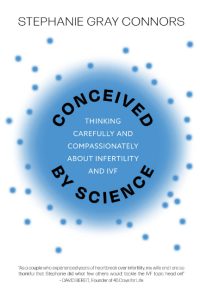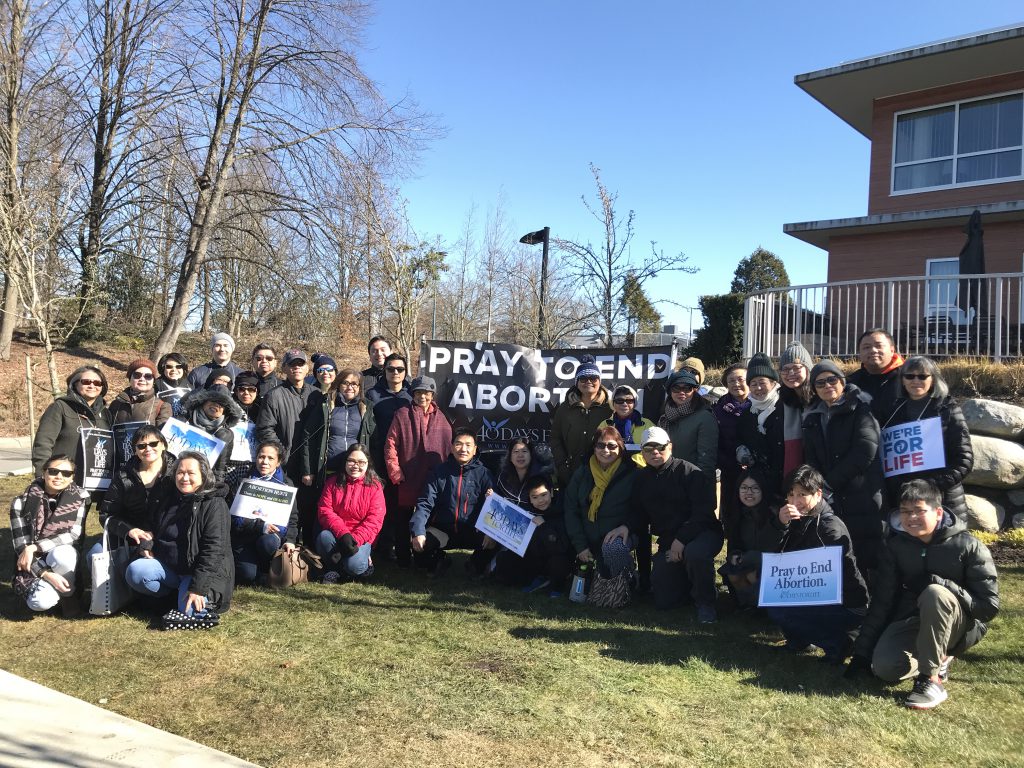Today, we begin our annual four-part pro-life series, and, as mentioned, this year’s focus is on in vitro fertilization. As we try to do every year, we want to begin with God’s mercy: We don’t want to approach moral issues like an aloof judge, but with truth and love.
Today, we’re just going to set the foundation, and part of that is acknowledging that the pain of not being able to have children is real. For example, in China, there are 31 million more men than there are women, because of the one-child policy and the Chinese preference for boys, so, more girls have been aborted, which has left millions of men not being able to marry and have children. We’ll return to this example at the end.
 I’m following the outline of the book Conceived by Science by my friend Stephanie Gray. She shares story after story of the pain of couples who can’t conceive or have had multiple miscarriages. Some have tried medical interventions for years but eventually gave up. Sometimes, when seeing friends have children, the pain deepens, followed by envy and anger. Sometimes people’s comments hurt: ‘You only have one child?’ or, ‘When are you going to have children?’ They obviously have no idea that there are reasons why they have one child or none. Then there are insensitive remarks like, ‘The clock is ticking, time to get going.’ Some women describe themselves as feeling ‘broken’ or ‘like a failure.’ Finally, one said, “The hardest [thing] was hearing about abortion. For this I was frustrated with God. Why would He give babies to women that did not want them but would not give me a baby after I had been so careful to do everything in my power to be able to have a baby” (3).
I’m following the outline of the book Conceived by Science by my friend Stephanie Gray. She shares story after story of the pain of couples who can’t conceive or have had multiple miscarriages. Some have tried medical interventions for years but eventually gave up. Sometimes, when seeing friends have children, the pain deepens, followed by envy and anger. Sometimes people’s comments hurt: ‘You only have one child?’ or, ‘When are you going to have children?’ They obviously have no idea that there are reasons why they have one child or none. Then there are insensitive remarks like, ‘The clock is ticking, time to get going.’ Some women describe themselves as feeling ‘broken’ or ‘like a failure.’ Finally, one said, “The hardest [thing] was hearing about abortion. For this I was frustrated with God. Why would He give babies to women that did not want them but would not give me a baby after I had been so careful to do everything in my power to be able to have a baby” (3).
Let’s ponder the first sentence of today’s Gospel, because it’s packed with love and truth: “After John was arrested, Jesus came to Galilee, proclaiming the good news of God, and saying, ‘The time is fulfilled, and the kingdom of God has come near; repent, and believe in the good news’” (Mk 1:14-15). The word ‘arrested’ literally means ‘handed over’ and will be the same word used for Jesus when He is betrayed (Mk 14:10-11,18), meaning the Cross is already present at the beginning of His ministry. His life, like ours, always involves suffering. The questions are: How do we approach it? What is God doing?
Remember what we said at Christmas? Jesus always wants to heal first that which has been hurt first. Jesus begins in ‘Galilee’ because that was the first of the 12 Jewish tribes to be attacked by the Assyrians centuries before.
‘Good news’ literally means ‘Gospel,’ which was used to describe military victories or coronations. “An inscription from about 9 BC calls the birthday of Caesar Augustus ‘good news for the world’” (Dr. Mary Healy, The Gospel of Mark in Catholic Commentary on Sacred Scripture, 29). So, when Jesus uses this word, He’s saying that God has now come into the world in the person of Jesus.
‘The time is fulfilled’ refers to God’s plan of trying to reach the whole world, but are we ready to receive His love? The reason we’re not covering the morality of IVF now is because, if we’re considering it or have already gone through it, we may not be ready for an intellectual discussion. We need to know first that we’re loved and that God has a plan for us; sometimes, in our pain, we just need to be heard. And what if we were conceived through IVF? We’ll touch on this next week, but our dignity as being loved by God is completely unaffected by this.
Next, here’s a question we’ve asked before: What is the main topic that Jesus talked about? The answer is not love or to be a good person. The answer is the ‘kingdom.’ Jesus did not come to make better persons, but to build His kingdom and invite everyone to join freely, and to love the King in return. Christianity is about a relationship. Morality is second.
So, before we talk about IVF, which involves abortions, let’s establish that every person is created by God, no one is an accident, there’s no such thing as an ‘unwanted baby,’ everyone who has had or been involved in an abortion is loved and is offered forgiveness by the King.
This is why the kingdom ‘has come near,’ but isn’t fully present. God’s kingdom is present insofar as people respond to God’s love: the more we respond, the more it’s present. The response God wants is love, that is, to ‘repent,’ meaning to change the way we think and love; and to ‘believe,’ meaning trust. God makes this demand because loving Him means getting rid of everything in our life that is proud, arrogant, or selfish, etc.
So, here’s where we’re going:
January 28, 2024: We’re going to talk about our equality before God, about rights, and the gift of children, and problems with IVF procedures.
February 4, 2024: We’re going to talk about the nature of parenthood, the commodification of humans, and God’s healing.
February 11, 2024: We’re going to talk about God’s call to witness to life, to love women and preborn children. As we’ve done for the past three years, we’ll show graphic photos and videos of abortion, so that the truth is known. If we don’t want to see it or don’t want our children to see it, we can always look down or not come to Mass here that Sunday.
February 15-18 & 22-25, 2024: We’ll do our annual pro-life vigil as part of the 40 Days for Life initiative. Next week we’ll meet Liera Mendonca who is in charge of our participation in this initiative, and we’ll start signing up.
Jesus loves us, but suffering is part of our life. How does He want us to respond? Let me leave you with a preview. It has to do with the moral principle of means and ends. As terrible as it is for 31 million men in China to struggle to find a wife, it’s led to something worse: human trafficking.
“The Washington Post shared a horrifying story of a Cambodian woman who went to China due to the promise of a job. But when she arrived she was forced into marriage against her will. She reported, ‘My husband said to me: “You are my slave; I bought you. If I want, I can do anything to you.” And anything he did: demanding to have sex four times a day, beating her after she refused… and his family locking her in the home” (Conceived by Science, 14. See original article here). There are now 5.8 million people trafficked in China. This illustrates the moral principle: the ends don’t justify the means. Even when we have a natural, good desire, we cannot use any means to fulfill it. Kidnapping to have a child can never be justified. But what about IVF?
Any moral criticism of IVF does not call into question the dignity of the child conceived, and never changes that Jesus came to die for our sins and offer us eternal life.



